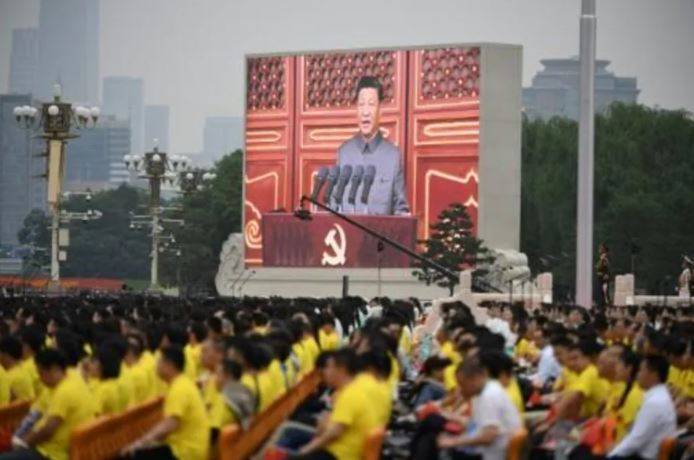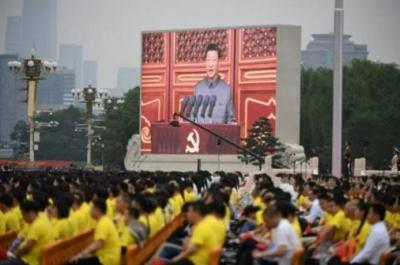China is preparing to fill the void left by American forces in Afghanistan following their departure from the country last Friday. China is adopting a range of strategies to replace the United States in Afghanistan, prominently focusing on the economic aspect. Authorities in Kabul are considering extending the China-Pakistan Economic Corridor, a massive $62 billion infrastructure project aimed at creating a land route connecting the city of Kashgar in China to the port of Gwadar in Pakistan. This initiative is part of China's "Belt and Road" initiative.
Chinese President Xi Jinping launched the project in 2013 as a global fund for infrastructure development, aimed at better connecting China with the rest of the world. The project is set to be completed by 2049, with China providing substantial loans to countries to help them improve their infrastructure, including the construction of new highways, railways, and energy pipelines between Pakistan and China extending into Afghanistan.
Among the projects currently under discussion is the construction of a major road between Afghanistan and the city of Peshawar in northwest Pakistan. According to the "Daily Beast," authorities in Kabul and Beijing are negotiating the matter of this strategic road. The newspaper reported an unnamed source saying, "Connecting Kabul and Peshawar by land means Afghanistan's official joining of the China-Pakistan Economic Corridor." The source noted ongoing communication between the Afghan government and China over the past few years, which led the U.S. to question the intentions of Afghan President Ashraf Ghani.
The Importance of Afghanistan
China hopes that through its Belt and Road initiative, it can connect Asia with Africa and Europe via land and sea networks extending across 60 countries. According to observers, this strategy is expected to enhance China's influence globally, valued at approximately $4 trillion. Afghanistan could provide China with a strategic foothold in the region for trade with a country that serves as a central hub connecting the Middle East, Central Asia, and Europe.
South Asia political affairs expert Michael Kugelman stated that Washington's withdrawal from Afghanistan presents Beijing with an unprecedented strategic opportunity. Kugelman told the "Daily Beast," "There will certainly be a void to fill, but we shouldn't overestimate China's ability to do so. With the security situation in Afghanistan spiraling out of control, there is much that China can do to solidify its presence." He noted that "China’s consolidation in Afghanistan will largely depend on whether Beijing can reach an understanding with the Taliban."
The U.S. military officially handed over Bagram Airfield to Afghan forces, as announced by a spokesperson from the Afghan Ministry of Defense on Friday, after the last foreign troops left the facility as part of their withdrawal from Afghanistan. Spokesman Fouad Aman tweeted: "The U.S. and coalition forces have completely withdrawn from the base, and thus Afghan army forces will protect it and use it to fight terrorism." This move comes after nearly 20 years of American forces being stationed at the base, which is the largest U.S. base in the region and was the center of the war waged by U.S. forces against the Taliban since 2001.




